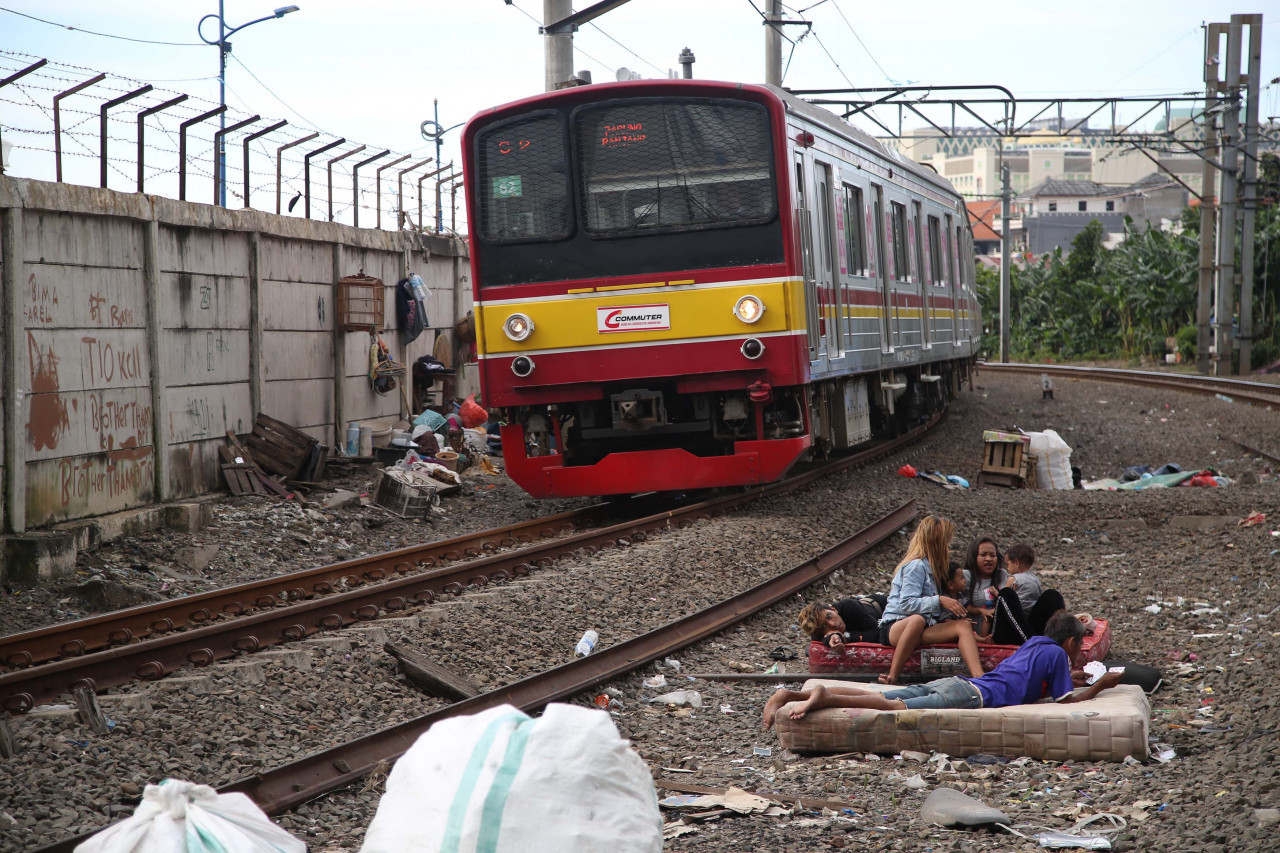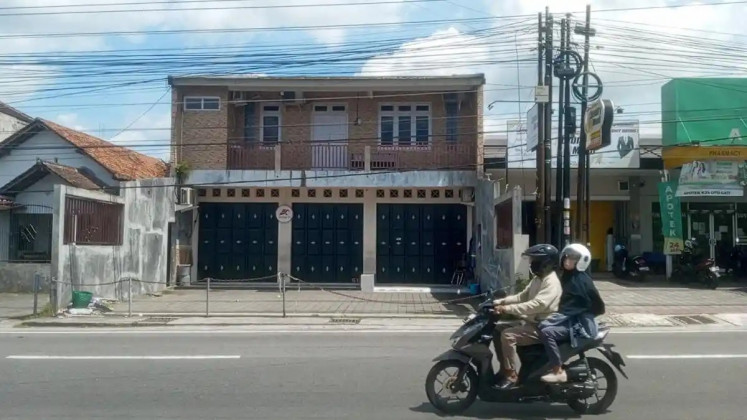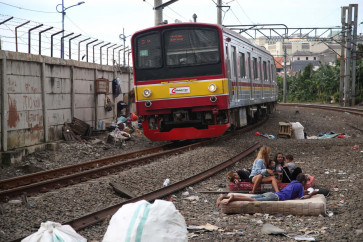Popular Reads
Top Results
Can't find what you're looking for?
View all search resultsPopular Reads
Top Results
Can't find what you're looking for?
View all search resultsMore vulnerable groups should be protected by govt, activists say
The researchers combed through 63 laws that were passed between 1957 and 2021, including 18 laws ratified from international covenants, none of which contained a comprehensive definition of vulnerable groups.
Change text size
Gift Premium Articles
to Anyone
 Vulnerable: People relax near the railway tracks at Pintu Air Karet, Tanah Abang, Central Jakarta, in this undated photo. According to recently-published research by the Indonesia Center for Law and Policy Studies (PSHK), the lack of acomprehensive definition of vulnerable groups means that some groups were left behind in terms of access to government protection. (JP/P.J. Leo)
Vulnerable: People relax near the railway tracks at Pintu Air Karet, Tanah Abang, Central Jakarta, in this undated photo. According to recently-published research by the Indonesia Center for Law and Policy Studies (PSHK), the lack of acomprehensive definition of vulnerable groups means that some groups were left behind in terms of access to government protection. (JP/P.J. Leo)
T
he prevailing laws in Indonesia do not include a comprehensive definition of vulnerable groups, which has led to unequal government protection among these groups and has left some more vulnerable to discrimination, researchers from the Indonesian Center for Law and Policy Studies (PSHK) said.
The researchers combed through 63 laws passed between 1957 and 2021, which included 18 laws ratified from international covenants, none of which contained a comprehensive definition of vulnerable groups.
Instead of defining vulnerable groups, current legislation tended only to mention examples of those groups, PSHK researcher Auditya Saputra said. In addition, the use of the term often differed from one law to another.
The 1999 Human Rights Law, for instance, mandates the government to grant “additional protection” for vulnerable groups with regards to their “specific [conditions].” According to the 1999 Law, such vulnerable groups include children, people with disabilities, the poor, pregnant women and the elderly.
Meanwhile, Article 29 of Law No. 25/2009 on public service stipulates that the government should provide special service for “certain parts of the society”, which includes people with disabilities, children, pregnant women, elderly people and victims of social as well as natural disasters.
Auditya said the provisions in the existing laws were not adequate as they left out other vulnerable groups, such as people with mental disabilities, gender minorities and people living with HIV/AIDS, among others. The situation, Auditya added, meant that such groups could be more vulnerable than others because they lacked legal protection from the government.
“If their vulnerability status is acknowledged by the government [through the laws], there are implications if the government fails to protect their [rights],” said Auditya on Wednesday, adding that such failure to guarantee the rights of the vulnerable groups could be interpreted as a form of human rights violation.

















